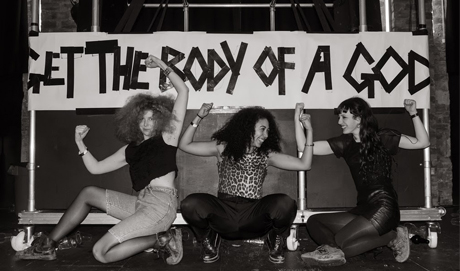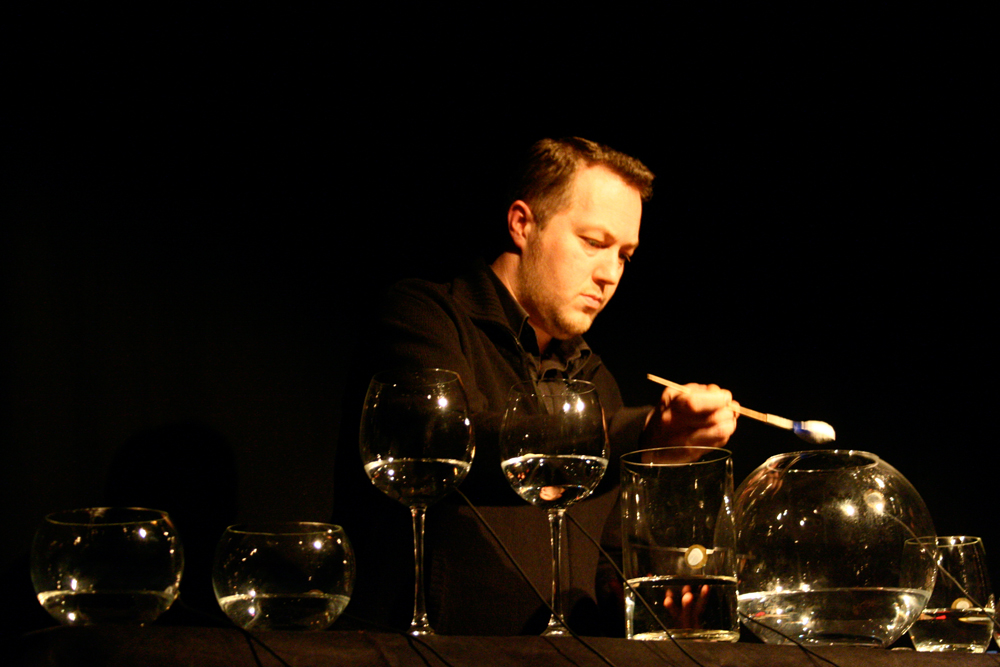
Dance Workshop
Glasgow Open Dance School Miss Prissy
A movement-based workshop on Krump and the politics of how we teach, learn and listen with our bodies. Move with us!
Arika have been creating events since 2001. The Archive is space to share the documentation of our work, over 600 events from the past 20 years. Browse the archive by event, artists and collections, explore using theme pairs, or use the index for a comprehensive overview.

A movement-based workshop on Krump and the politics of how we teach, learn and listen with our bodies. Move with us!

Adamantly analogue, inspiring and frequently chaotic in performance, Metamkine draw no distinction between image and sound; during their intuitively improvised performances music and images are created simultaneously and equitably.

Akio Suzuki and John Butcher performing in an old underground reservoir in Fife.

Are artists powerless in the face of technology? These often whimsical and amusing films are minimal technological interventions and appropriations but maybe also rigorous takes on the role of popular media and culture in our hyper-technological world.

In this response to the Self Cancellation project, Lee Patterson dissolves medicine in glasses of water and explores the sonic content.

Individual experience separated by physical boundaries (of space, time or ability) suggested as communities of collective experience by (perhaps voyeuristic) artists.

The role of feelings in public life, (political) depression and creative survival.
Artist Derek Lodge running a specially designed social space, somewhere for conversation, story-telling and interaction.

Bruno’s liberated improvisational approach stretches beyond the lyrical, tough as nails rhythmic bursts and expressive, swinging attack of his drumming.

A riot of 60’s psychedelia, magick, ritual and tight black leather, this programme highlights underground innovators who use and subvert pop music for their own experimental ends; and be warned, in Anger, there’s real darkness.

Trio vocal performance of a score by Achim Wollscheid with Aileen Campbell, Junko and Dylan Nyoukis.

A series of three short performed situations and statements to be examined or judged from the most interesting young musician in Glasgow (we think).